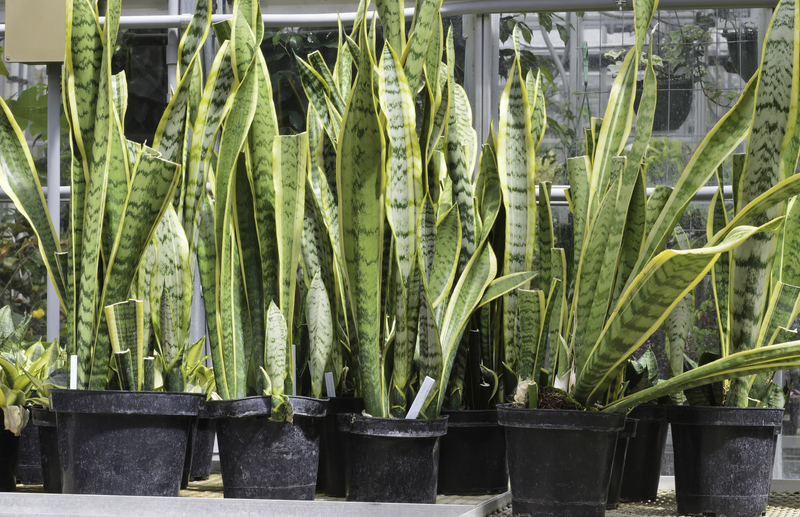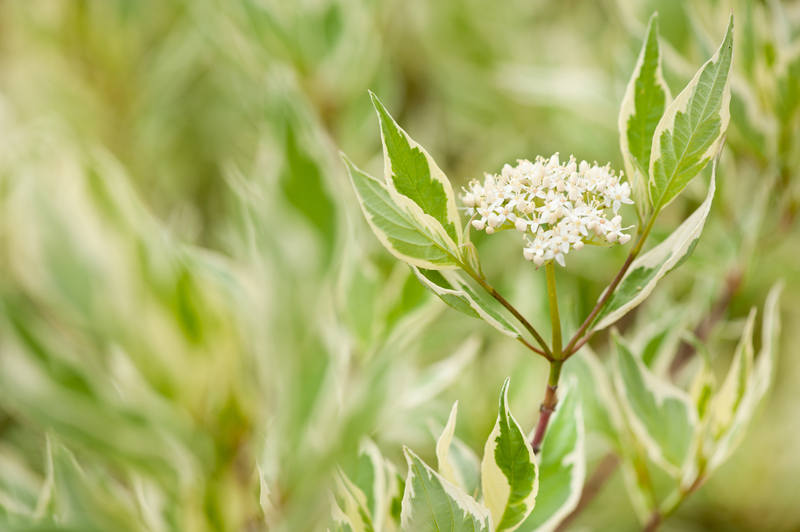Transform Your Garden: 3 Crucial Tips for Weed Management
Posted on 26/09/2025
Transform Your Garden: 3 Crucial Tips for Weed Management
Maintaining a beautiful and healthy garden is a dream for many homeowners and gardening enthusiasts. However, weed control can often be the most challenging aspect of gardening. Unwanted weeds compete with your beloved plants for nutrients, water, and sunlight--sometimes seriously affecting the overall aesthetic and health of your garden. If you're looking to achieve a picture-perfect outdoor space, mastering effective weed management strategies is vital. In this comprehensive guide, we outline three essential weed management tips that will help you transform your garden into a thriving, weed-free oasis.

Why Is Weed Management Essential for Gardens?
Before delving into the top tips for weed management, it's important to understand why weed control is crucial for every gardener:
- Weeds steal nutrients and water from your desired plants, stunting their growth.
- They act as hosts for pests and diseases, increasing the risk of infestations and infections in your garden.
- Weeds decrease aesthetics, turning an attractive garden into a messy, overgrown area.
- Some weed species spread aggressively and can even harm hardscaping, causing cracks or damage.
Therefore, effective weed management techniques are not just about appearances--they're about promoting plant health and longevity. Let's explore the best ways to tackle weeds before they take over your garden paradise.
Tip #1: Prevent Weeds with Smart Planning
Mulching--Your First Line of Defense
One of the most efficient ways to minimize weed growth is by using mulch as a protective barrier. Mulching not only improves soil moisture and temperature regulation but also blocks sunlight from reaching weed seeds, preventing them from germinating.
Organic mulches such as wood chips, straw, shredded leaves, or composted bark are especially effective. As they decompose, they also enrich the soil. Inorganic mulches, such as landscape fabrics or gravel, can be used in pathways or low-maintenance areas for even longer-lasting weed protection.
Tips for Effective Mulching:
- Apply mulch in a thick layer (2-4 inches) for best results--but avoid piling it directly against plant stems or tree trunks.
- Replenish mulch as needed to maintain its effectiveness throughout the seasons.
- Use pre-emergent herbicides beneath mulch in problem areas to prevent annual weeds from sprouting.
Integrated Planting Strategies
A densely planted garden is less susceptible to weed invasion. When you minimize bare soil by planting groundcovers, spreading shrubs, or perennials closely together, you reduce opportunities for weed seeds to find a home.
Smart plant choices for suppressing weeds include:
- Low-growing groundcovers (e.g., Ajuga, Vinca, Phlox)
- Fast-spreading perennials (e.g., Hostas, Daylilies)
- Clumping grasses (e.g., Carex, Festuca)
The denser and more competitive your plantings, the less room there is for weeds to establish themselves.
Tip #2: Manual Weed Removal--Best Practices
Why Hand Weeding Still Matters
Even with prevention, some weeds will manage to crop up. Hand-pulling remains one of the most reliable ways to remove weeds, especially before they mature and set seed. Early removal ensures the weed problem doesn't escalate and minimizes the need for chemical intervention.
Effective Hand-Weeding Tips:
- Weed after rain or watering for looser soil and easier root removal.
- Use specialized tools, such as weeders or hori-hori knives, to extract tough rooted weeds like dandelions or thistles.
- Always remove the entire root--especially for perennial weeds that regenerate from root fragments.
- Dispose of pulled weeds before they dry and release seeds back into the garden.
Hand pulling can be a therapeutic activity--enjoy the fresh air and the visible results it brings to your garden.
Spot Spraying and Targeted Cutting
For hard-to-pull or deep-rooted weeds, spot spraying with a biodegradable herbicide or using a weed torch can be effective. These methods allow precise treatment, minimizing damage to desired plants or beneficial insects.
- Always use herbicides sparingly and follow label instructions.
- Prefer eco-friendly or organic products in edible gardens or near children and pets.
- Consider flaming tools for driveways and walkways, especially for annual weeds.
Tip #3: Long-Term Weed Control Strategies
Soil Health and Fertility Management
Did you know that healthy soil can actually inhibit weed growth? A garden with well-balanced nutrients, proper pH, and rich organic matter supports robust plant health--making it harder for weeds to take over.
- Test your soil every 2-3 years to monitor nutrient levels and pH.
- Add organic matter to improve structure and boost beneficial microbes.
- Practice crop rotation in vegetable gardens to disrupt pest and weed cycles.
Healthy plants grow vigorously and outcompete most weeds for resources.
Consistent Garden Maintenance
Regular upkeep is the cornerstone of successful weed management. This includes:
- Weekly walks to identify and address new weed growth promptly.
- Edging lawns and beds to prevent turfgrass and invasive weeds from spreading.
- Removing plant debris or leaves where weed seeds may germinate.
- Keeping tools clean to avoid spreading weed seeds between garden beds.
Explore Biological Controls
For those interested in sustainable gardening, introducing the right companion plants or beneficial insects can provide an additional layer of weed suppression. Certain plants give off natural chemicals that inhibit weed growth, known as allelopathy. For example:
- Marigolds help suppress many common garden weeds.
- Cover crops like clover or buckwheat act as natural weed barriers during off-seasons.
Important Tips to Remember
- Tackle weeds early--the sooner you start, the less likely they'll spread and seed.
- Stay persistent; managing weeds is an ongoing process, not a one-time task.
- Rotate your weed control strategies to prevent weed adaptation.
By remaining vigilant and using a combination of these proven methods, you'll ensure your garden stays healthy and visually stunning throughout the year.

Frequently Asked Questions About Weed Management
How often should I check my garden for weeds?
It's best to walk through your garden at least once a week--especially during the growing season. Catching weeds early makes removal much easier and prevents them from spreading seeds.
Are organic weed control methods as effective as chemical options?
Organic methods, such as mulching, hand-weeding, and using natural herbicides, can be very effective when combined and applied consistently. They are safer for the environment, pets, and children, making them an excellent choice for most gardens.
Can I use newspaper or cardboard as mulch?
Yes! Newspaper and cardboard mulch are excellent weed barriers. Lay down several layers around plants and cover them with wood chips or straw. Over time, they'll decompose and add organic matter to the soil.
Should I use weed killer in my vegetable garden?
Be cautious with chemical weed killers in edibles areas. Opt for organic solutions, physical removal, or mulching. If you must use a herbicide, choose one labeled safe for vegetable gardens and strictly follow instructions.
How do I prevent weeds in pathways or gravel areas?
Lay landscape fabric or thick layers of cardboard underneath gravel or pavers. Regularly raking and applying a pre-emergent can also help prevent weeds from establishing in these areas.
Conclusion: Achieve a Stunning, Weed-Free Garden
Transforming your garden isn't just about planting beautiful flowers--it's about smart weed management and cultivating an environment where your plants can thrive, free from competition. By embracing these three crucial tips for weed management--prevention through smart planning, diligent manual removal, and sustainable long-term strategies--you can create an outdoor oasis that remains lush and vibrant all season long.
Remember, persistence and a multifaceted approach are key. With these expert garden weed control techniques and regular attention, you'll enjoy not only a visually appealing landscape but also healthier, happier plants ready to reward you for years to come.
Start today, and see your garden transformed--weed-free, flourishing, and uniquely yours!
Latest Posts
Transform Your Garden: 3 Crucial Tips for Weed Management
Discovering the Joys of Container Gardening
Blending Gardening and Doggie Adventures

